Green energy poses few barriers for some
Vinamilk, the top dairy company in Vietnam, added another plant in the southern province of Binh Duong to its list of green factories at the end of last month, reaffirming the firm’s strong commitment on the journey towards achieving net-zero targets by 2050.
Vinamilk has made history as the first domestic dairy company to own two factories, and also boast one farm that has achieved international certification for carbon neutrality.
Currently, green energy sources such as solar power and compressed natural gas account for over 90 per cent of the energy consumption at the factory in Binh Duong. According to its greenhouse gas (GHG) inventory report, the plant’s emissions in 2023 reduced by 30 per cent compared to the previous year.
Practising green conversion and energy saving is one of Vinamilk’s efforts since the announcement of its Pathways to Dairy Net-Zero 2050 action plan in the middle of last year. All the company’s factories are implementing energy-saving solutions, such as investing in environmentally friendly technology systems, heat and water recovery systems, and utilising green and clean energy as alternatives to fossil fuels in the production process.
“Approximately 86 per cent of Vinamilk’s energy sources used in production are clean and renewable,” a representative stated. “The company plans to further increase this proportion, serving the goal of reducing GHG emissions by 15 per cent by 2027.”
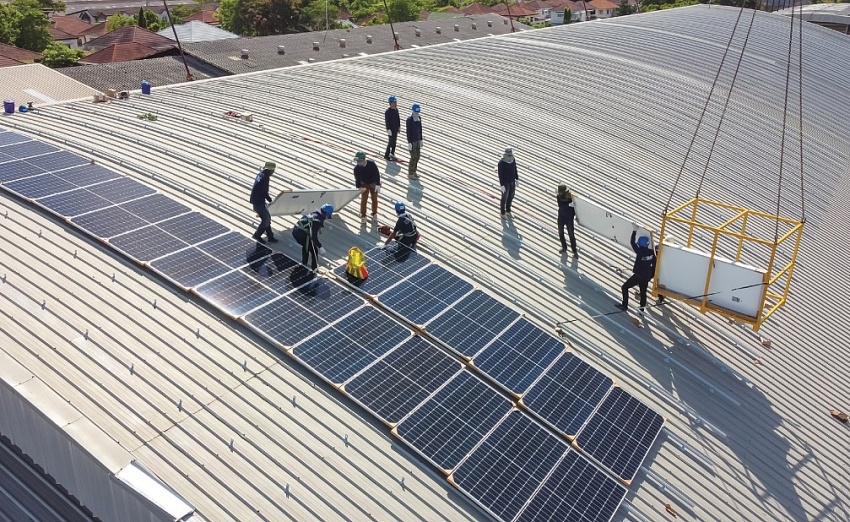 |
| Some companies have been implementing rooftop solar systems for their projects, Photo: Shutterstock |
The transition to green and clean energy in production is becoming a mandatory requirement for many other businesses and is part of the roadmap to obtain green certifications to access major export markets, such as the EU.
Its Carbon Border Adjustment Mechanism requires importers to report the carbon emissions associated with their goods. If the emissions exceed the established standards, businesses must purchase carbon certificates at the specified EU price.
Than Duc Viet, CEO of apparel group Garco 10, said, “90 per cent of our production is for export, so using renewable energy is a mandatory requirement to demonstrate that our manufacturing process meets green standards.”
For two years, Garco 10 has been implementing the use of green energy from rooftop solar systems for projects in the north-central province of Thanh Hoa. Since last December, the company has also been installing rooftop solar systems for other factories in Quang Binh and Thai Binh provinces after recognising its significant benefits.
“Those ventures, once completed, will provide around 1,000 and 640kWp a year respectively, contributing to a cost-saving of 15-20 per cent in electricity usage,” Viet said.
The transition to green and sustainable energy to contribute to emission reduction goals has been included in Vietnam’s green growth strategy for 2021-2030.
According to the national energy master plan announced last year, Vietnam prioritises the development of renewable energy sources for electricity generation, aiming for a contribution rate of around 31-39 per cent by 2030 and 67-71 per cent by 2050.
According to Le Xuan Nghia, a member of the National Financial and Monetary Policy Advisory Council, renewable energy sources such as solar, wind, hydro, and bioenergy help minimise environmental impact and create stable and sustainable energy sources for the future.
“The transition to renewable energy also promotes technological innovations such as energy storage, electric vehicles, and smart systems, reducing dependence on fossil fuels and pressure on the national electricity grid. However, one of the most difficult challenges in developing renewable energy is the limited infrastructure and high costs,” Nghia noted.
According to Pham Tuan Anh, sustainability director of animal feed company GREENFEED Vietnam, the investment costs and environmental benefits as well as economic advantages and brand value are the factors that businesses often consider when deciding to invest in green initiatives such as transitioning to renewable energy, green energy, and rooftop solar.
“Only when both objectives can be met - reducing emissions and bringing value to the business - can an initiative be considered feasible and applicable,” Anh said.
He emphasised that besides the efforts made by businesses, authorised agencies also need to issue specific guidelines to address policy gaps and funding difficulties in the renewable energy and green energy sectors, in order to encourage businesses to invest in their own factories.
“Accessing green finance and green incentives is still very challenging, and we do not have specific regulations to support or encourage businesses to participate more in the GHG emissions reduction process,” Anh noted.
The proportion of renewable energy, including biomass, biogas, and rooftop solar energy, currently accounts for approximately 17 per cent of GREENFEED’s energy production structure.
Over the next five years, the company aims to continue developing rooftop solar projects for self-consumption in manufacturing facilities that have not yet implemented the system. The farms will also continue to recover biogas to power generators for operation, with the expectation of contributing an additional 15-20 per cent of the company’s proportion of renewable energy.
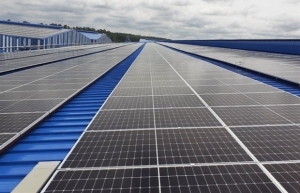 | Deputy PM highlights incentive policies for rooftop solar power installation Deputy Prime Minister Tran Hong Ha highlighted the importance of rooftop solar power in ensuring energy security, saying that there needs to be mechanisms and policies to encourage organisations and individuals to invest in solar power. |
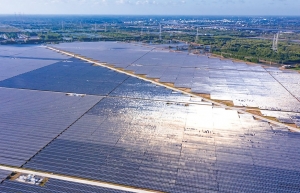 | Rooftop solar power puts IPs on the map Transferring to renewable energy through installing rooftop solar power systems is set to help foster competitive capacity and further the sustainable development of businesses. |
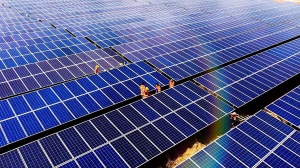 | US to end duty-free tariffs on Vietnamese solar panels The US' duty-free tariff treatment for solar products from Cambodia, Malaysia, Thailand, and Vietnam, will end in June, according to an announcement by the White House on May 16. |
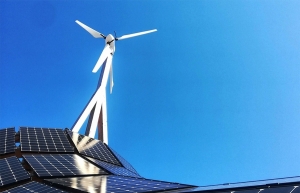 | Vietnam explores bypassing EVN on direct rooftop solar sales Rooftop solar, waste-to-energy, and biomass power projects may soon bypass state utility EVN for direct sales, according to Deputy Prime Minister Tran Hong Ha. |
What the stars mean:
★ Poor ★ ★ Promising ★★★ Good ★★★★ Very good ★★★★★ Exceptional
 Tag:
Tag:
Related Contents
Latest News
More News
- Bac Ai Pumped Storage Hydropower Plant to enter peak construction phase (January 27, 2026 | 08:00)
- ASEAN could scale up sustainable aviation fuel by 2050 (January 24, 2026 | 10:19)
- 64,000 hectares of sea allocated for offshore wind surveys (January 22, 2026 | 20:23)
- EVN secures financing for Quang Trach II LNG power plant (January 17, 2026 | 15:55)
- PC1 teams up with DENZAI on regional wind projects (January 16, 2026 | 21:18)
- Innovation and ESG practices drive green transition in the digital era (January 16, 2026 | 16:51)
- Bac Ai hydropower works stay on track despite holiday period (January 16, 2026 | 16:19)
- Fugro extends MoU with PTSC G&S to support offshore wind growth (January 14, 2026 | 15:59)
- Pacifico Energy starts commercial operations at Sunpro Wind Farm in Mekong Delta (January 12, 2026 | 14:01)
- Honda launches electric two-wheeler, expands charging infrastructure (January 12, 2026 | 14:00)






















 Mobile Version
Mobile Version